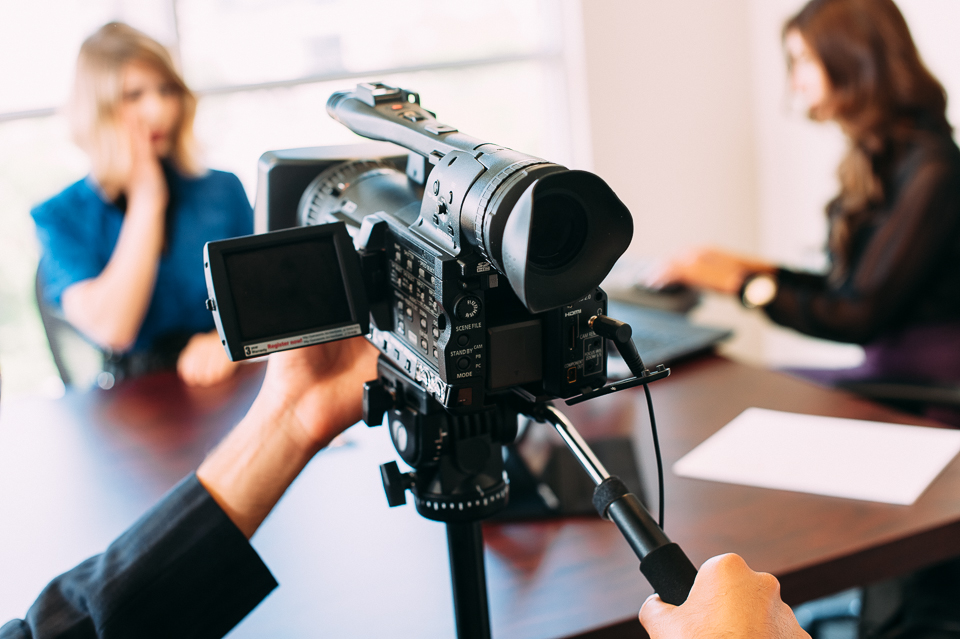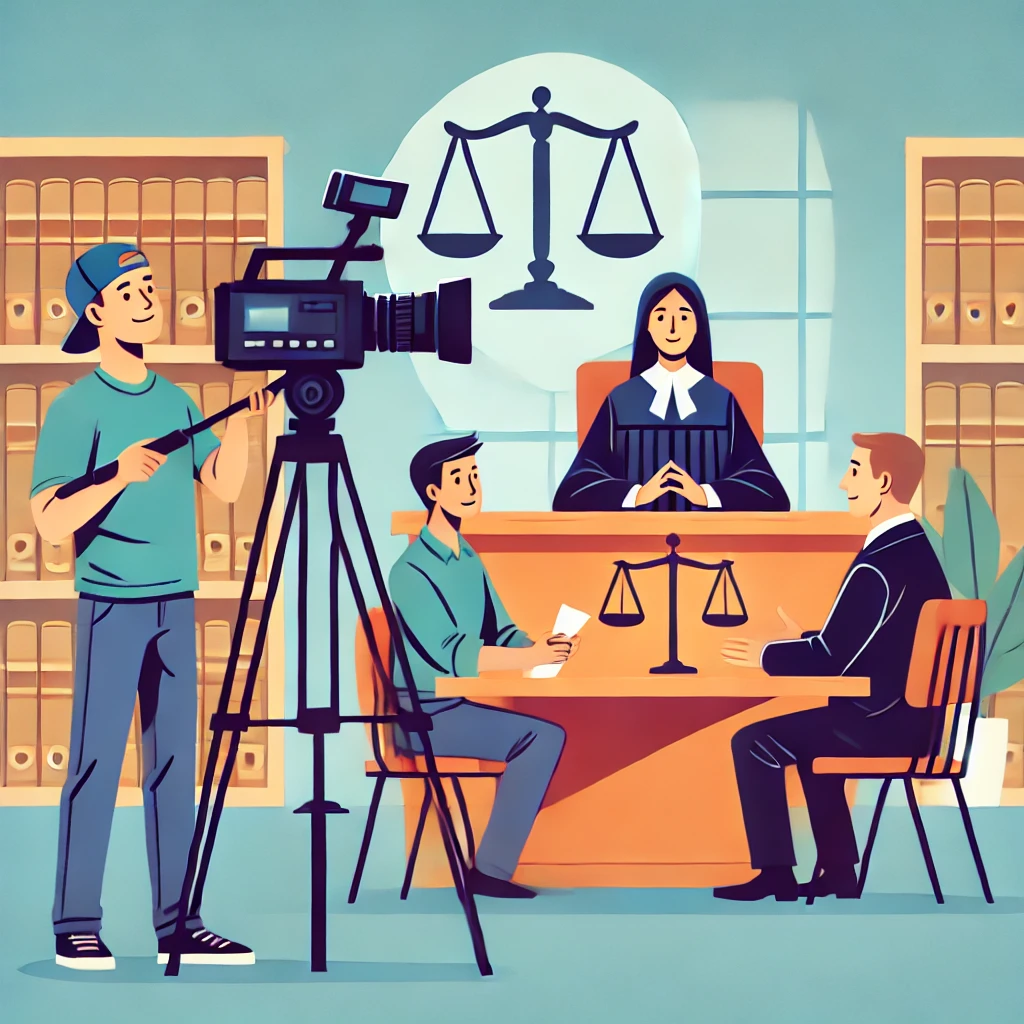The Role of Lawful Videography in Depositions and Tests
Legal videography has become a vital tool in both depositions and tests, giving a diverse method to recording witness testaments. By catching not only the spoken word however additionally the nuances of non-verbal interaction, this medium boosts the reliability of testaments and protects critical evidence for future procedures (legal videography). As attorneys progressively recognize its worth, it prompts a much deeper assessment of how these aesthetic documents can influence juror understandings and trial end results. What implications might these growths hold for the future of legal technique?

Value of Lawful Videography
Legal videography plays a critical duty in the documents and presentation of depositions and trials. This specific area combines technological abilities with lawful knowledge to produce a reputable document of process that can significantly affect instance outcomes. The appearance of lawful videography boosts the understanding of witness testament, allowing jurors and judges to observe not only the spoken words however additionally the demeanor, emotions, and body language of the witnesses.
On top of that, legal videography gives an objective account of events, reducing the possibility for misinterpretation that can occur with written records alone. This aesthetic documents functions as a vital device throughout test presentations, helping with a clearer and even more influential narrative for both complainants and accuseds. The ability to replay video clip sectors throughout court process enables lawful teams to stress crucial points, strengthening their disagreements efficiently.
The relevance of legal videography expands past the court room; it likewise plays an important duty in protecting proof for future reference, whether for allures or further lawsuit. Its assimilation into the lawful process is necessary for ensuring a fair and precise representation of the truths, eventually contributing to the search of justice.

Refine of Legal Videography
While capturing the subtleties of depositions and trials, the procedure of legal videography entails a number of important steps that make sure top quality, exact recordings. Originally, a specialist lawful videographer prepares by examining the instance materials and comprehending the particular requirements of the deposition or test. This prep work consists of acquainting themselves with the individuals and the context, which aids in capturing significant information.
On the day of the recording, the videographer establishes up the essential devices, which typically includes high-definition electronic cameras, microphones, and appropriate lights. Making sure ideal angles and sound high quality is crucial, as it directly affects the efficiency of the recording. The videographer communicates with attorneys and participants to develop methods, making certain that every person comprehends the recording process.
During the deposition or test, the videographer diligently tapes the procedures, paying very close attention to both spoken and non-verbal signs. This consists of catching the behavior and reactions of witnesses and lawyers. After the session wraps up, the videographer may modify the video for quality and compliance with legal criteria, creating an end product that properly shows the proceedings for future referral and usage in lawful contexts.
Benefits in Depositions
The unification of videography in depositions provides various benefits that improve the general process of collecting proof. One main benefit is the capacity to catch witness statements with aesthetic and auditory fidelity, giving a much more accurate depiction of the witness's disposition, tone, and body language. This multidimensional approach permits attorneys and juries to evaluate reliability much more efficiently than standard written records alone.
Furthermore, videographed depositions function as an effective tool for protecting testimony. Must a witness come to be not available for test, their recorded deposition can be played in court, making sure that their evidence stays accessible and appropriate. This facet significantly minimizes the threat of losing important details that can impact case end results.

Lastly, videography enhances the total professionalism and reliability of the deposition procedure, instilling confidence in customers regarding the thoroughness of their legal depiction (legal videography). By leveraging technology, lawyers can significantly boost the efficiency of depositions
Influence On Tests
In several trials, the combination of videography can dramatically influence the discussion of proof and the court's understanding. Legal videography captures witness testaments and vital proof in a vibrant style, enabling jurors to engage with the product on several levels. This aesthetic part boosts the narration facet of a test, offering context and emotional resonance that typical text-based evidence might lack.
Moreover, video recordings can serve as powerful devices for impeachment during interrogation. When discrepancies occur between a witness's previous statements and you could try this out their courtroom statement, video evidence provides an objective referral that can persuade jurors' opinions. This immediacy and clarity can strengthen the integrity of a party's story while all at once threatening opposing arguments.

Future Trends in Legal Videography
As we look toward the future of lawful videography, a number of emerging fads guarantee to improve its role within the courtroom. One substantial pattern is the integration of man-made intelligence (AI) in video analysis and modifying. AI can streamline the process of determining crucial minutes in recorded depositions, allowing lawyers to promptly access relevant content, thereby improving effectiveness in instance preparation.
Additionally, the increase of virtual reality (VR) and enhanced reality (AR) modern technologies is expected to transform exactly how jurors experience proof. legal videography. By immersing jurors in a substitute environment, these innovations can supply an extra profound understanding of intricate situations, resulting in even more informed deliberations
Additionally, the increasing demand for remote depositions, sped up by the COVID-19 pandemic, will likely proceed. Legal videographers will certainly check my blog require to adjust to new software and systems to ensure top notch recordings in online setups.
Lastly, the expanding emphasis on information protection will certainly necessitate stricter methods for storing and sharing video proof. As the lawful landscape advances, lawful videographers need to stay abreast of these fads to preserve their importance and effectiveness in the judicial process.
Final Thought
In recap, lawful videography serves an important function in the judicial procedure, boosting the integrity of depositions and tests. By capturing the nuances of witness testimonies, this medium not just protects important evidence however additionally help in providing info efficiently to jurors. The relevance of visual documentation in evaluating integrity and promoting interrogation can not be overstated. As innovation remains to progress, lawful videography is positioned to further transform its function within the legal landscape.